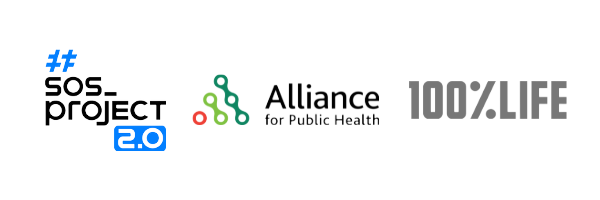As part of the pursuit of the UNAIDS “95-95-95” global targets to end the AIDS epidemic by 2030, special attention is being paid to HIV prevention among men who have sex with men (MSM). Currently, general approaches and models for implementing interventions have been developed, but in the countries of Eastern Europe and Central Asia (EECA region), practical guidance is needed that takes into account specific conditions and principles presented in international guidelines.
To this end, the Comprehensive Package of HIV Prevention Services among MSM was developed as part of the projects of the Eurasian Regional Consortium “Moving Together Towards Quality and Equality: Improved Sustainable Services for ISPs in EECA” and SOS 2.0, supported by the Robert Carr Foundation, the International Charitable Foundation “Alliance for Public Health,” and the Charitable Organization “100% Life.” This project is being implemented by a consortium of organizations with financial support from the Global Fund to Fight AIDS, Tuberculosis and Malaria (GFATM).
The comprehensive package includes both traditional and innovative (online and remote) approaches to the provision of services, as well as criteria, requirements, and conditions for their provision at the community level for local adaptation. It serves as a basis for
- planning the process of implementing specified interventions and providing services;
- budgeting for HIV interventions and projects;
- and developing a quality-management system and evaluating services at the organization-provider level.

The publication was prepared by ECOM and published as part of the Regional project “Sustainability of services for key populations in the region of Eastern Europe and Central Asia” (SoS_project 2.0), implemented by a consortium of organizations led by the Alliance for Public Health in partnership with the CO “100% Life”, with financial support from the Global Fund.
The views expressed in this publication are those of the authors and may not reflect the views of the consortium organizations as well as the Global Fund.
The Global Fund was not involved in agreeing and approving either the material itself or the possible conclusions from it.
